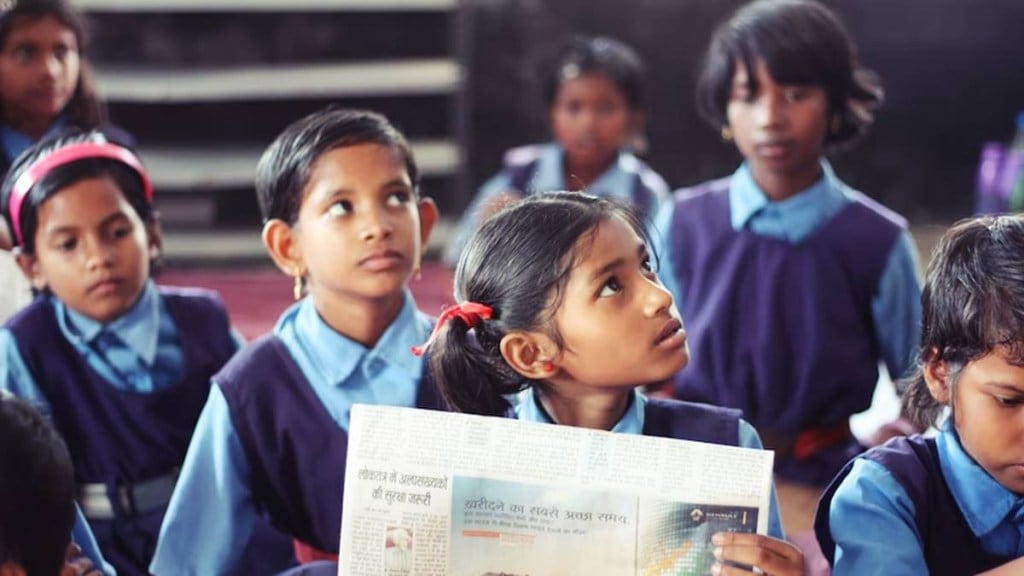National Education Day: Every year on November 11, India commemorates National Education Day, which honours Maulana Abul Kalam Azad, India’s first education minister after independence. This year’s National Education Day theme is “Changing Course, Transforming Education.” This theme emphasises the need to reform the education system and make it more modern.
Azad’s main focus in post-independence India as the first Indian education minister was educating the rural poor and girls. Free and compulsory education for all children up to the age of 14, Adult literacy, universal primary education, and diversification of secondary education and vocational training were also key areas on which he focused.
Maulana Abul Kalam Azad said addressing a conference on All India Education in 1948 that “We must not for a moment forget, it is a birthright of every individual to receive at least the basic education without which he cannot fully discharge his duties as a citizen.”
Also Read | Early childhood education: Stepping stone for a new India
Education has evolved at a rapid pace in the last few decades, and technology has helped take education to the remotest parts of the country. Quality education, along with skill development, has become an essential part of the overall development of youth.
“Today many young people are questioning the value of education and the need to invest their valuable money and time to pursue degrees that have no job linkage. Academic success does not guarantee a job or even success in real life. We need to align education and skilling together making education more experiential and real life based. Skills like problem solving, working in teams, flexibility, dealing with ambiguity, dealing with failures, workplace ethics, organizational skills etc are more important to many corporations and employers than grades, marks, and degrees. These skills are best taught early through projects, case studies and through role models.” Said Manav Subodh- Founder of 1M1B (One Million for One Billion)- Youth Focused organization that mobilizes youths in the fields of entrepreneurship, skill development, future leadership, health care, environment, and sustainability,
Manav Subodh added that “Metaverse in education is a big opportunity in this direction. Even students in the remotest part of India can now access experiential and real-life training leveraging the Metaverse. Inclusive skilling and education is possible on the Metaverse. Meanwhile, workplace experiences and meaningful internships should be made an essential part of any curriculum (not just the university curriculum but also for high school curriculums). Corporations on the other hand, looking for talent must also come forward and work closely with the government in this direction. For example, corporations must become flexible in their internal HR and staffing policies and think creatively on opening opportunities and doors for a talented 14- or 16-year-old student. Today many organizations don’t give any opportunity to under 18 students due to their policy on dealing with minors. The doors are completely shut for minors in many organizations, this needs to change.”
Ravi Bhushan, Founder and CEO, BrightCHAMPS, sharing his favourite quote on education by Malcolm Forbes, said, “Education’s purpose is to replace an empty mind with an open one – I think it captures the true essence of what it means to be educated, which is not about filling students’ minds with facts and figures or scoring the most on a term paper or even ranking the first in class and getting through the top institute. Don’t get me wrong — There is no denying that all these often play an integral role in where you end up, at least in the early stages of your career. But to my mind, education is much beyond these. It must be about identifying children’s latent talents, recognising and encouraging their true potential, and, in the process, opening their minds to new possibilities.”
“Oftentimes the most valuable lesson a child receives is outside the classroom. As parents and educators, our focus then must not be solely on educating our children with facts, but enabling them to learn through questioning, experimenting, exploring. Equip them with skills that will help them navigate the future and thrive in it. Skills to understand and participate in existing and emerging technologies like robotics, AI, machine learning, coding, etc. which will be imperative in a world of digital natives. Financial know-how, because are any of us not affected by the forces of money? Communication skills because to communicate effectively is to inspire, activate, engage, convince, even lead the world! So today, on National Education Day, let’s inspire the learner in our kids and keep the spark to experiment, fail, innovate and learn in them alive. Teach them how learning doesn’t end at the university level but is a lifelong process of learning and unlearning and becoming informed, empathetic and responsible humans, citizens and leaders,” Bhushan said.
Students from all over the country organize discussions, debates, and themed programmes about Maulana Abul Kalam Azad’s teachings and achievements along with the cultural programmes commemorating Maulana Abul Kalam Azad’s birth anniversary. His contribution to education in the country cannot be forgotten.
Furthermore, schools and institutions holds discussions or seminars to address current problems and issues in the Indian education system. Through these discussions, experts and shareholders can identify problems in the system and propose potential solutions.
